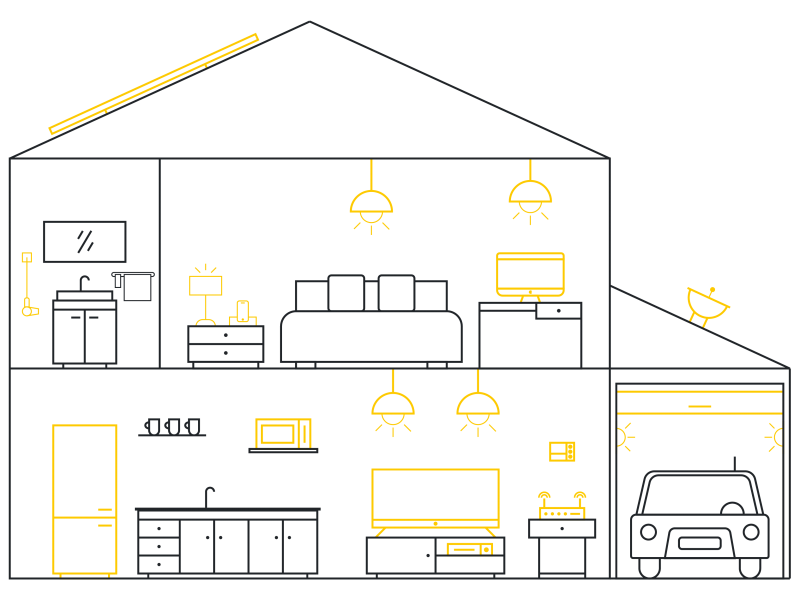Advantages

What is a photovoltaic panel installation?
The great advantage of installing photovoltaic panels is the possibility that everyone, with no exception, must capitalize on solar energy, converting it into electrical energy, which can be used directly at the consumption point or sold to the electricity grid.
Now of energy transition that we are going through, it is imperative to opt for conscious and sustainable solutions, such as the investment in photovoltaic solar energy.
Advantages
Business Models
UPAC - SELF-CONSUMPTION PRODUCTION UNITS
A UPAC allows generating electrical energy for self-consumption.
The production units are designed according to the reality of reference consumption of the place where the photovoltaic plant will be installed.
When there is surplus production, the energy can be sold to the Public Service Electric Grid (RESP), thus constituting a revenue, in addition to the savings already obtained from self-consumption.
UPP - SMALL PRODUCTION UNIT
A UPP allows, like self-consumption, the production of electrical energy. However, in this case, the energy that is produced is entirely injected into the Public Service Electric Grid (RESP).
The producer's revenue results from the tariff assigned through a bidding model in which competitors offer a discount from the reference tariff, and this tariff is defined by means of an ordinance and calculated for each of the categories.
REC - RENEWABLE ENERGY COMMUNITIES
RECs are communities whose members participate in the installation process of one or more renewable energy production plants and in the management and distribution of the energy produced there by self-consumers.
The advantage of the RECs is the optimization of the financial benefits resulting from the investment in solar energy, since it allows the production of photovoltaic units to be shared by members of the community, thus minimizing the injection of surplus energy.